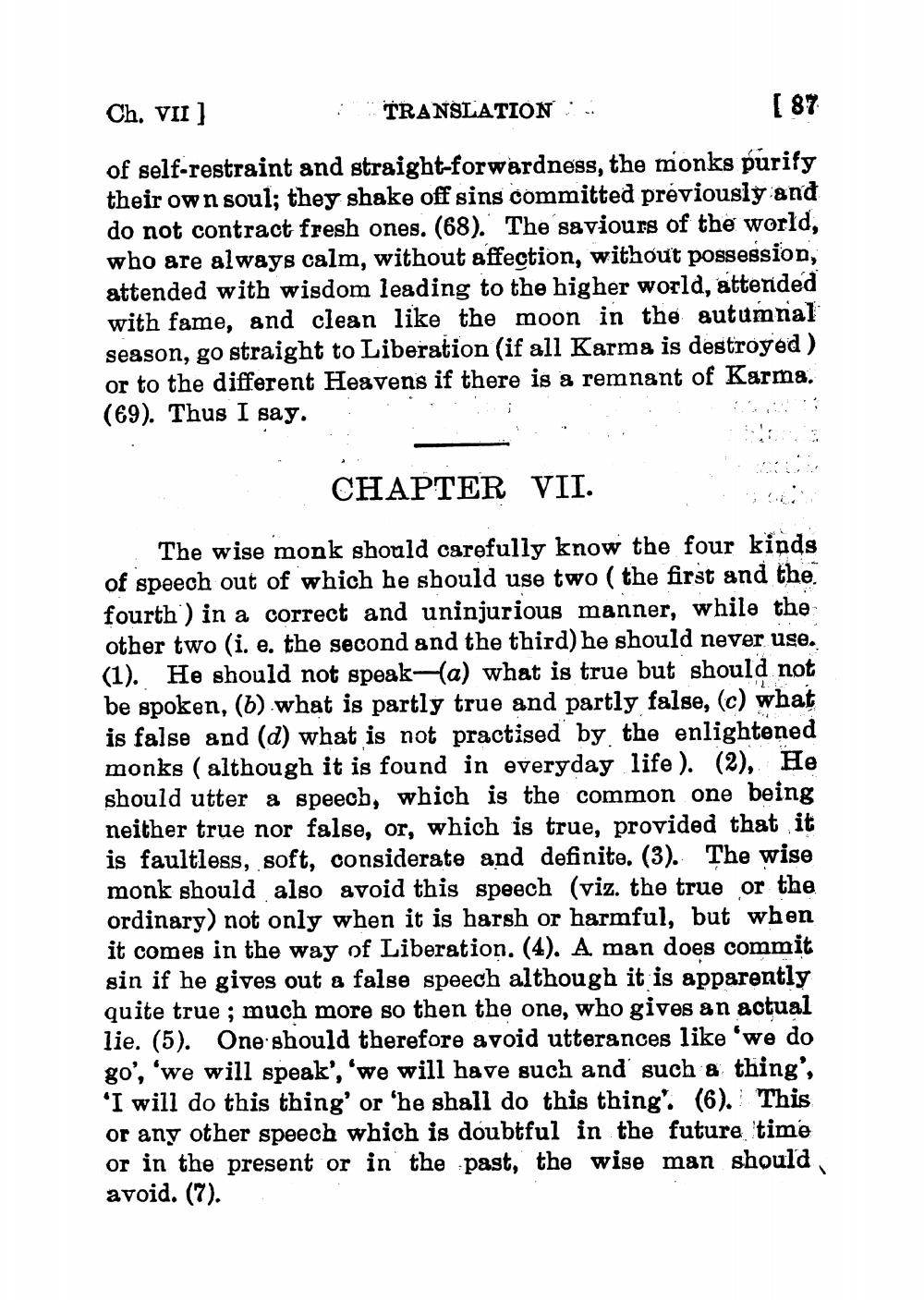________________
Ch. VII]
[ 87
of self-restraint and straight-forwardness, the monks purify their own soul; they shake off sins committed préviously and do not contract fresh ones. (68). The saviours of the world, who are always calm, without affection, without possession, attended with wisdom leading to the higher world, attended with fame, and clean like the moon in the autumnal season, go straight to Liberation (if all Karma is destroyed) or to the different Heavens if there is a remnant of Karma. (69). Thus I say.
TRANSLATION
CHAPTER VII.
The wise monk should carefully know the four kinds of speech out of which he should use two ( the first and the. fourth) in a correct and uninjurious manner, while the other two (i. e. the second and the third) he should never use. (1). He should not speak-(a) what is true but should not be spoken, (b) what is partly true and partly false, (c) what is false and (d) what is not practised by the enlightened monks (although it is found in everyday life). (2), He should utter a speech, which is the common one being neither true nor false, or, which is true, provided that it is faultless, soft, considerate and definite. (3). The wise monk should also avoid this speech (viz. the true or the ordinary) not only when it is harsh or harmful, but when it comes in the way of Liberation. (4). A man does commit sin if he gives out a false speech although it is apparently quite true; much more so then the one, who gives an actual lie. (5). One should therefore avoid utterances like 'we do go', 'we will speak', 'we will have such and such a thing', 'I will do this thing' or 'he shall do this thing'. (6). This or any other speech which is doubtful in the future time or in the present or in the past, the wise man should avoid. (7).




